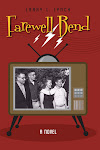This blog aims to help readers find the true crime stories that, for reasons of this writer’s particular interests, equal or exceed Truman Capote’s In Cold Blood and Tommy Thompson’s Blood and Money.
Our particular interests include, but are not limited to, finding an educational and involving story that carries all the way to its end. We also look for cultural and historical value when it’s well embedded. The simply sensational is of little interest, and I’m trying to search off the beaten path to find true crime books that measure up.
The Murder of Helen Jewett by Patricia Cline Cohen. was recommended by an academic friend as a true crime effort with historical weight. She couldn’t have been more correct about the weight business. The story of the murder of a
I spent hours with Cline’s work and, at the outset, felt well rewarded for the time spent. If detail and context were enough to make a great book, this would qualify. Few books that I have read contain as much detail as carefully analyzed as this one. Much of it illustrates the business of newspapers directed at the common person during the 1830s, something that I have a passing interest in, but it was all too much. By the time I had reached Chapter 4 on “The New York Sex Trade,” I knew the basic story and most of the key characters in some detail, and I knew Cline’s approach would be to analyze, reanalyze and again reanalyze each aspect of the murder so thoroughly that I couldn’t stay with the repetition. I skipped to the end, found out what happened with the likely murderer and moved on to another book.
That said, her work seems to hold up in terms of relatively frequent purchases on Amazon years after publication, probably as a result of being frequently assigned as required reading in history courses. Personally, I’d have liked it more if she had found an editor determined to serve the reader. Close, research-based document analysis makes good academic work, but it loses a reader looking for the true-crime counterpart of P.D. James.

No comments:
Post a Comment